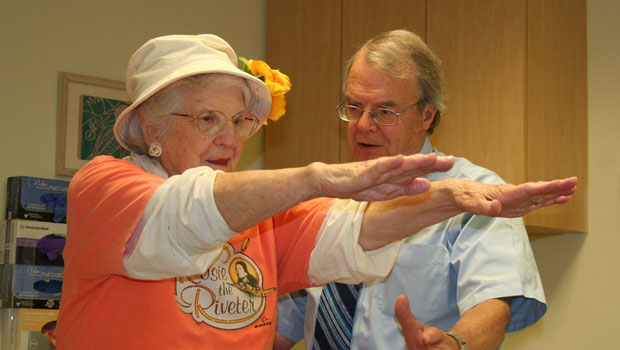News release: Group Health and UW get $13 million to study aging and the brain

Georgie Bright Kunkel with Dr. Eric B. Larson.
National Institute on Aging renews funding for long-running ‘living laboratory’
What happens with Group Health patients older than 65 as they lead their lives? The Group Health–University of Washington Adult Changes in Thought (ACT) study has been finding out—for decades. One of the longest-running studies of its kind, the ACT study has become a “living laboratory” to understand the aging process—particularly in the brain—and to identify risk factors for conditions such as dementia, including Alzheimer’s disease.
Now the National Institute on Aging has awarded the study a grant of nearly $13 million to continue its work for the next five years, through April 2020. Eric B. Larson, MD, MPH, and Paul K. Crane, MD, MPH, co-lead the study as multi-principal investigators.
For the next five years, the ACT study will focus on several areas, including these three:
- Multiple illnesses
How can having various chronic conditions, including risk factors for diseases of the heart and blood vessels, affect brain aging? - Healthy aging
Why are some ACT participants who have survived past age 85 still thinking and moving so well? - Big data
How can the ACT study continue as a resource for various collaborators worldwide who are interested in ACT’s rich sources of information from research and clinical visits?
Learn more about the study: Long-running study of aging examines changes in Group Health patients over time.
And see the news release about the grant renewal: Group Health and UW get $13 million to study aging and the brain.


